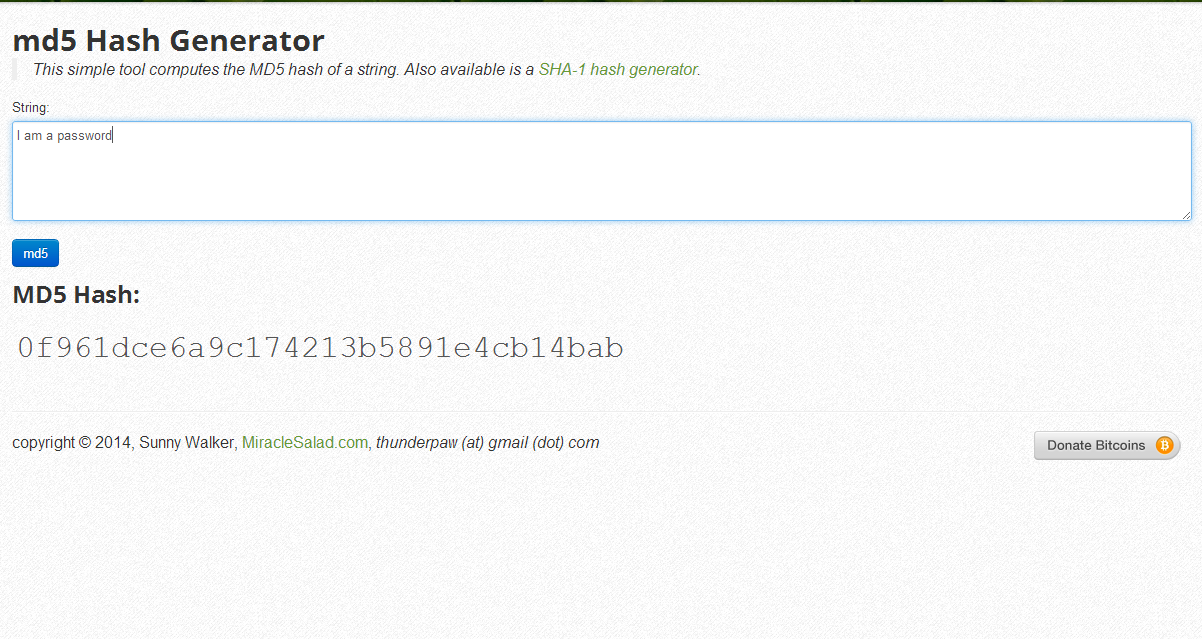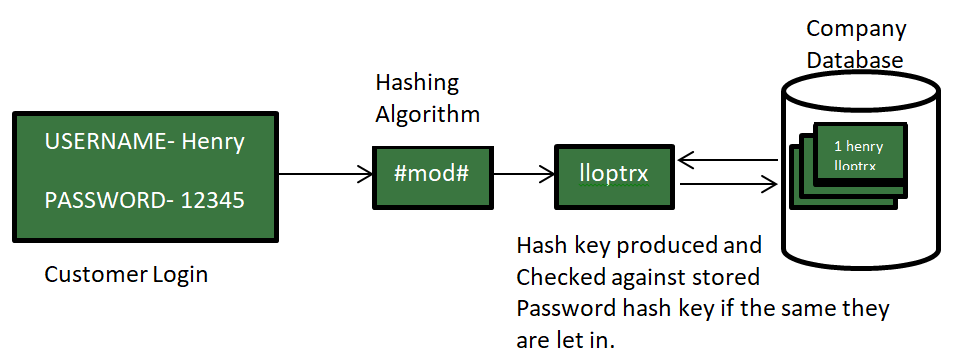

Note that the digest operation is effectively a destructive, read-once operation. The returned string will be 16 bytes long. Return the binary digest for the message. See Digest for description of the arguments that add_bits() take. The add_bits() method is provided for compatibility with other digest implementations. Since the MD5 algorithm is byte oriented you might only add bits as multiples of 8, so you probably want to just use add() instead. In most cases you want to make sure that the $io_handle is in binmode before you pass it as argument to the addfile() method. It is probably wise to discard or reset the $md5 object if this occurs. The addfile() method might have been able to read the file partially before it failed. If it croaks it is unpredictable what the state of the $md5 object will be in. The addfile() method will croak() if it fails reading data for some reason. The return value is the $md5 object itself.

The $io_handle will be read until EOF and its content appended to the message we calculate the digest for. The return value is the $md5 object itself.Īll these lines will have the same effect on the state of the $md5 object: $md5->add("a") $md5->add("b") $md5->add("c") The $data provided as argument are appended to the message we calculate the digest for. when calculating digests iteratively on a continuous data stream. It is useful when you do not want to destroy the digests state, but need an intermediate value of the digest, e.g. $md5->new) it will just reset the state the object to the state of a newly created object.

The constructor returns a new Digest::MD5 object which encapsulate the state of the MD5 message-digest algorithm. The following methods are provided: # $md5 = Digest::MD5->new A single object can be used to calculate multiple digests. After a Digest::MD5 object has been created, you will add data to it and finally ask for the digest in a suitable format. The object oriented interface to Digest::MD5 is described in this section. If you want interoperability with other base64 encoded md5 digests you might want to append the redundant string "=" to the result. Note that the base64 encoded string returned is not padded to be a multiple of 4 bytes long. The length of the returned string will be 22 and it will only contain characters from this set: 'A'.'Z', 'a'.'z', '0'.'9', '+' and '/'. Same as md5(), but will return the digest as a base64 encoded string. The length of the returned string will be 32 and it will only contain characters from this set: '0'.'9' and 'a'.'f'. Same as md5(), but will return the digest in hexadecimal form. The result of md5("a", "b", "c") will be exactly the same as the result of md5("abc"). This function will concatenate all arguments, calculate the MD5 digest of this "message", and return it in binary form. None of these functions are exported by default. The following functions are provided by the Digest::MD5 module. The Digest::MD5 module provide a procedural interface for simple use, as well as an object oriented interface that can handle messages of arbitrary length and which can read files directly. It still seems hard to generate messages that produce a given digest, but it is probably wise to move to stronger algorithms for applications that depend on the digest to uniquely identify a message. It has since 2005 been easy to generate different messages that produce the same MD5 digest. Note that the MD5 algorithm is not as strong as it used to be. The algorithm takes as input a message of arbitrary length and produces as output a 128-bit "fingerprint" or "message digest" of the input. MD5 Message Digest algorithm from within Perl programs.

The Digest::MD5 module allows you to use the RSA Data Security Inc. Use Digest::MD5 qw(md5 md5_hex md5_base64) Digest::MD5 - Perl interface to the MD5 Algorithm #SYNOPSIS # Functional style


 0 kommentar(er)
0 kommentar(er)
